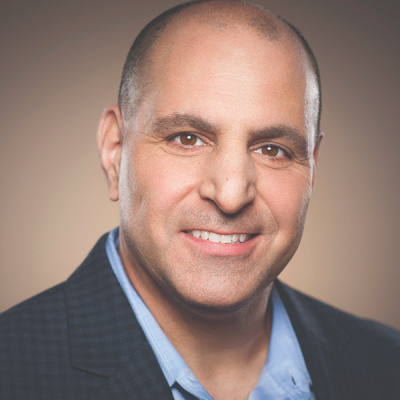Health literacy is a central part of our total health, especially as we age. However, the National Assessment of Adult Literacy found that 71 percent of adults aged 60 and older had difficulty using print materials, 80 percent were challenged using forms or charts, and 68 percent had trouble interpreting numbers and doing calculations.
Health literacy is also important when selecting the right health care coverage. My parents relied on me to help them understand their healthcare options and plan choices, however, not everyone has a caregiver equipped with the knowledge to help guide these health decisions.
Older adults are now one of the fastest-growing demographics in our nation — we must ensure they are equipped with the right tools to take care of their health.
When people, especially Medicare members, struggle to understand health information, it impacts their ability to choose a plan that best meets their unique health needs. The wrong plan can lead to poorer health, higher costs, and underuse of medical treatments and services that keep people healthy. That’s why Aetna made a strong commitment to improving our Medicare members’ experience by communicating in ways that are easy to understand.
How Aetna Is Improving Health Literacy and the Member Experience
Over the past few years, Aetna has taken many steps to help our Medicare members and others find and understand information to help with their health-related decisions. As part of this commitment, we wanted to understand areas where members were experiencing barriers to care.
In 2020, Aetna conducted focus groups with over 500 Medicare members, providers, and internal clinicians to understand how health literacy creates barriers resulting in gaps in care and inequities. One key finding showed many older adults in Medicare managed care programs had low health literacy, which affects whether they know about and/or use preventive health services. Armed with this information, Aetna created models of care that improved the Medicare member experience by communicating health plan information in simpler, easier-to-understand terms.
We Speak Human
In 2020, Aetna created “We Speak Human,” a program that redesigned health plan materials by removing jargon, adding graphics and making them easier to follow. Besides including simpler language on the member website, the We Speak Human team piloted adding QR codes on member ID cards that, when scanned by a smartphone camera, take members to a plan-specific landing page with core documents like their Summary of Benefits. The team also created and mailed members a plan-specific handbook highlighting core plan benefits and costs, along with a zippered bag to house it. Aetna suggested members keep the bag and handbook in a safe place and add their medications to the bag. Then, whenever members visit their doctor or other health care providers, they can bring the bag with them. The handbook also includes a section for providers promoting plan-specific support for members.
Healthy Aging Support Program (HASP)
To help seniors manage their chronic conditions, Aetna also launched the Healthy Aging Support Program (HASP), a short-term, self-management education program. Support services range from nutrition and exercise to medication adherence. The program also includes tips for working with your doctor and loved ones to identify the health plan benefits that best fit your needs. Before beginning the six-week program, participants complete an initial assessment with a registered nurse. Throughout the program, participants develop a personalized action plan that their health coach reviews at the program’s end. Members repeatedly confirm the value of this program: “I’ve always gotten overwhelmed when I tried to make changes before,” noted a participant. “This program helped me by giving information in small chunks, so I could implement them without getting overwhelmed.”
Complex and Multicultural Care Management Programs
Finally, Aetna’s Complex and Multicultural Care Management programs are another way we’re improving health literacy among older adults. These programs focus on the holistic needs of medically complex members, addressing their total health and the non-medical factors that influence their health outcomes and overall well-being. The program addresses and helps close gaps in care and helps members prioritize realistic goals, manage medications, find the right community resources and navigate the health care system.
The rapidly growing and increasingly diverse Medicare population deserves high-quality, affordable care that fits their wants and needs—and health literacy plays a significant role in helping them get that care. High health literacy makes it easier for people to access the tools, resources, and care they need to make informed decisions about their health.
Together, we can bring awareness to the importance—and impact—of health literacy and work toward making equitable care a reality for all.
